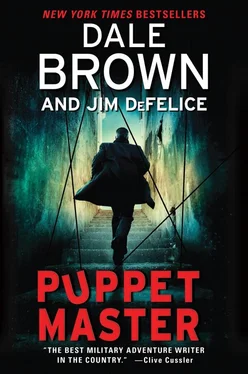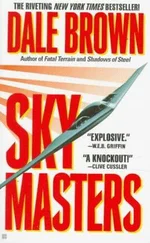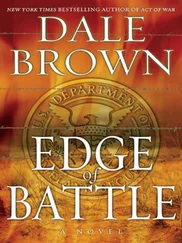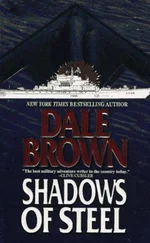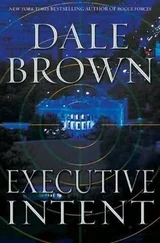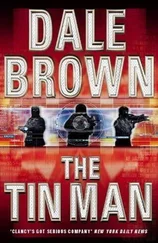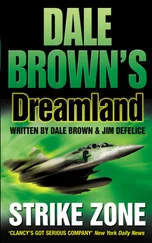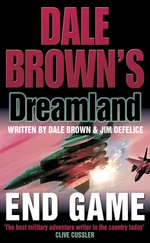The prison was relatively new, with thick cement block walls, heavy steel gates, and generous rolls of razor wire even in the interior hallways. You couldn’t run in a straight line for more than twenty meters due to either barriers or the wire; there was even one twist-back on the large main stairway that led to the administrative section. Dozens of guards were scattered around, armed with long riot batons. Most were dressed in ill-fitting uniforms, and Tolevi got the sense that they were here more as a make-work project than out of any real need for security. A few joked, many listened to music on their phones, and nearly all were smoking cigarettes when he passed.
“You’re late,” said Olga Uvenski’s assistant when Tolevi finally arrived. The assistant was about the same age as the deputy mayor’s, but that was all they had in common. His skin was clear; tall and trim, he could have passed as a model.
“I apologize,” said Tolevi. “Is Ms. Uvenski in?”
“Wait.”
Tolevi sat in a leather seat at the side and folded his arms. The office was a few ticks above what he had expected, the furniture on par with what you’d find in the waiting room of a prosperous law firm in Boston.
That was a good sign.
Even better was the spring in Olga Uvenski’s step as she came out to meet him.
“A friend of Victor’s is a friend of mine,” she said, ushering himself inside.
Her office was decked out in enough fresh flowers to make a florist weep for joy. The furniture was even more impressive than what was in the waiting room. Her desk’s front featured an eagle head inlaid in cherry and oak, so highly polished that Tolevi could see a reflection of his shoes.
This was definitely his world, a place that knew no nationalities, where greed and weakness made anything possible. They were the counter to power, the remedy to the brutal Darwinian way of the universe, and even to the laws of physics. If you had money and wiles, you could escape any tyranny, or at least turn it to your advantage.
“And so, why did Victor send you?” Uvenski asked after her assistant brought them a tray of fresh tea.
“I notice that you offer tea rather than coffee,” said Tolevi, holding up his cup.
“You prefer coffee?”
“I suspect that you would, too, if the coffee were good.”
“Possibly.”
“Let me be frank. The deputy mayor and I are working on an arrangement that would provide coffee, among other things, to the area,” said Tolevi, launching into his pitch. “Good coffee, from South America. He is, well, I think of him as a franchisee. I import different things to parts of the world where they are sometimes not available. As you can tell from my accent, I am American, in a way.”
“You speak well. Your accent led me to believe you were Russian.”
“I have family there and in what is now west Ukraine, as well as the Donetsk People’s Republic.” He stepped lightly here, moving quickly. “A facility such as yours must need many items. I can supply them. I need to be able to bring things in bulk,” he added as an explanation. “To cover my costs. Unfortunately, they are significant, as you might guess.”
“What items would we need here?”
“Perhaps you would tell me.”
Uvenski, until now very neutral, leaned forward and, with a few words, showed why she ruled this domain. “I purchase items for the prison and the plant,” she told him with a sharp edge. “All items. Luxuries such as coffee are not needed here.”
“Ah well then, I guess my friend was simply making conversation.” Tolevi rose. “I’m sorry to have wasted your time.”
“Sit down, Mr. Tolevi. And let’s talk business. Meat. Beef. And yes, coffee. Fifty percent to me.”
“That’s a heavy percentage.”
“Half in goods, half cash.”
“Still. I have so many expenses. If those are taken into account—”
“Sit. Drink some more tea. Forty percent in cash, the rest in goods.”
“At that price, then I would need favors,” said Tolevi. “Another way for me to earn money, perhaps in a way you can’t. Some old employees are kept here. They would save me costs if they were on my payroll.”
“I do not think that is possible.”
“What if their parole were purchased? As part of the payment, one or two thrown in, for good will.”
“My good will or yours?”
“I have many high expenses. Forty percent — I doubt I can get a contract worth enough if the Russians oversee it. And without them, importation is too dangerous.”
“They don’t oversee anything. My budget comes from the Republic’s government, and with the power plant, we have a lot of leeway. I can guarantee the goods will arrive.”
“Forty percent then, and a dozen men.”
“Who?”
“I’ll supply a list.”
“If I wanted to make money that way, their families could pay me directly,” said Uvenski.
“Until one complained. Then you would find yourself accused of blackmail. Whereas if I did it, I am to blame.”
“Forty percent. I give you ten prisoners. You pay ten thousand euros per prisoner up front. I pick them.”
“You’ll pick people who can’t pay. I make the list. That’s a deal breaker. And you have to come down in price. My margins are very slim.”
Johansen would consider ten thousand euros to bail out the butcher a bargain. But one had to bargain.
“That’s my final offer.”
“Forget the prisoners,” he told her. “I don’t really know that business anyway. It was Victor who mentioned it, as a possible way of paying for the arrangements. I don’t need complications.”
“So, we have a deal?”
“I can’t afford it, even at forty percent. I’m sorry.” Tolevi rose to go. “Maybe some small shipments, something easy like aspirin or Band-Aids. But beyond that, to get coffee. I only get the best, because I drink it, and so it’s absurdly expensive. Everyone holds you up. So many payoffs just getting it on the ship.”
“Sit, Mr. Tolevi. Certainly we can work this out.”
* * *
By the time Tolevi emerged from the office, he had a tentative deal to supply the prison with medicine, coffee, and cigarettes at regular intervals for the next six months. To seal the deal, he would provide an up-front payment of ten thousand euros, to be transferred by wire to an account in Crete by the end of the week. In return, he would receive two prisoners, both of whom she said he could choose.
She then gave him a few suggestions, along with an idea of what he could probably get for them.
The butcher was not on her list, a minor matter — or so he hoped.
Tolevi got a tour of the facility on the way out. His guide — Uvenski’s assistant — walked him across a bridge that ran on the border of the exercise yard into an older brick building used as a storehouse for supplies. There was no direct connection between the building and the outside world; supplies had to be hand-carried past the outer wall and the rows of razor wire.
The aide was quite proud of this. Tolevi suppressed his disappointment.
Worse was the isolated building at the back end of the compound. This was a small, cubelike structure surrounded by a barbed-wire-topped fence and numerous warning signs indicating that the ground was mined on both sides of the fence.
“What’s in there?” Tolevi asked.
“Traitors.”
Back at municipal hall, the deputy mayor had not yet reported for work.
“You might have better luck looking for him where you found him last night,” suggested the young man.
“I’ll give that a try,” said Tolevi, anxious to close the deal.
Boston — around 1:30 a.m., Sunday
Even the most insanely dedicated Smart Metal worker — and the description would apply to just about everyone — did not work on Sundays. That was an unbreakable rule set by Massina himself, and often enforced by a personal walkthrough shortly after midnight. As hard as he pushed his people, he thought the day off was critical for creativity — as well as religious observance, though this was unstated in his company’s policies.
Читать дальше
